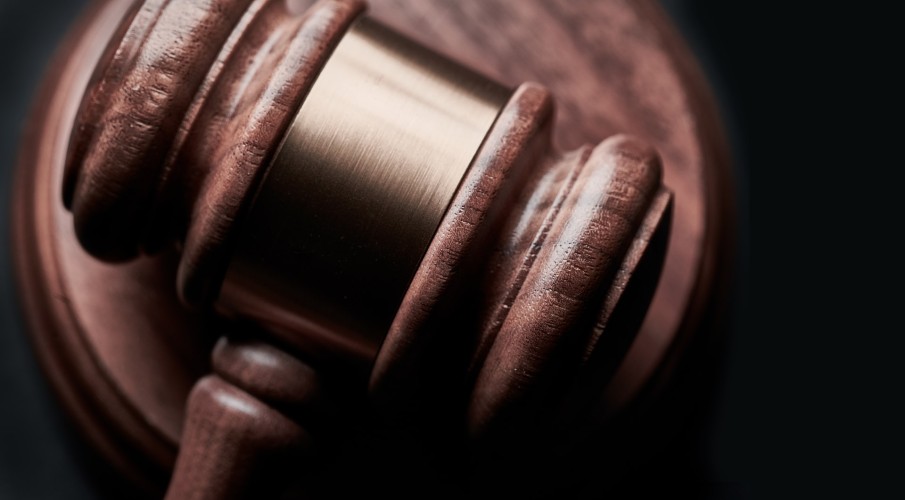Why do complaints about professors’ inappropriate behavior turn into retaliatory defamation lawsuits?
Dmitry Dubrovsky
Photo: Are there tools to protect the rights of students—and faculty—in the event of conflict? (Photo by Bill Oxford on Unsplash)
Educational institutions are characterized by an established hierarchy that involves grading. Grades affect funding and, at times, professional opportunities, making relationships between students and professors far from idyllic.
As recent events at Russian universities related to the #MeToo movement demonstrate, this hierarchy enables certain professors to abuse their status.
Students, in turn, can abuse their professors’ trust.
Are there tools to protect the rights of students—and faculty—when conflict arises?
Who Resolves Conflicts at Universities around the Globe?
In the wake of the 1960s university protests around the world, including the US, Canada, and Australia, ombudsmen emerged as intermediaries to resolve conflicts between faculty and students.
The UK even created an independent body, the Office of the Independent Adjudicator, to settle disputes arising at universities.
The International Ombudsman Association supplies a code of ethics fundamental to the duties of ombudsmen.
Abroad, ombudsmen have long since become part of the general mechanism for protecting academic rights and freedoms. Their work is guided by the following principles:
- impartiality,
- neutrality,
- confidentiality,
- and, very importantly, informality, understood as “nonparticipation in any official or administrative procedures.”
Ombudsmen can deliberate on cases ranging from disputed exam grades to discrimination and harassment.
Who Solves the Same Conflicts in Russia?
Following the example of Western institutions, Russian universities introduced similar posts:
- At HSE, it is the Office of the Ombudsman for Students and Applicants
- MGIMO drew on the U.S. and Canadian experience and appointed a university ombudsman to resolve conflicts involving faculty and staff.
Universities also create special commissions designed to serve the same purpose.
2012 marked the emergence of the first student rights Ombudsman in Russia. The post was occupied by the head of the Russian Student Union, Artem Khromov, until its abolition in 2018. At that time, the state-controlled Russian Student Center took over its responsibility of protecting student rights.
Principle of Formality
The issue of ombudsmen’s independence and informality is the watershed separating such mediators in Russia from those in other countries.
For instance, the Association for Slavic, East European, and Eurasian Studies (ASEEES) criticized HSE’s Academic Ethics Commission for pressuring “Dr. Gasan Guseinov to retract and publicly apologize for remarks that he made on Facebook.”
Often, ethics commissions in Russian universities are not characterized by neutrality and informality—nor by systematic adherence to principles of academic freedom. In violation of the informality principle, these institutions are involved in administrative procedures.
And they are therefore rather formal.
Court as the Last Resort
Faculty or university administrators accused of sexual harassment consider the courtroom to be the only possible place for settling the dispute. University management often supports them. “If someone has complaints, they are to be resolved in court,” said the acting dean of the MSU Philology Faculty, Andrey Lipgart, when commenting on a story about sexual harassment.
Universities simply do not have the tools to resolve such conflicts involving faculty and students. The only remaining recourse is courts.
Students provide evidence of professors’ inappropriate and, at times, criminal behavior. Professors, in turn, defend their “honor and dignity” from “defamation.”
Faculty against Students
- On June 24, the Zelenograd District Court denied a lawsuit filed by Igor Gromov, a Moscow State Institute of Music (MGIM) professor, against Valeriya Perepelitsa, a student at the Institute who was appealing her expulsion. The professor demanded 300,000 rubles in compensation for allegedly defamatory claims in the student’s complaint that he claimed infringed on his honor and dignity.
- The complaint also provoked a dramatic reaction from MGIM’s rector, Anna Shcherbakova, who stated that students “do not have any right to their own opinion, especially of defamatory nature.”
- At the same time, students and faculty who tried to speak out in defense of Perepelitsa were subject to serious pressure.
This is indicative of a broader trend: complaints about a faculty member’s inappropriate behavior are viewed as an attack on his honor and dignity.
In today’s Russia, such retaliatory lawsuits are extremely common. Indeed, government officials often file them as a way of getting back at journalists.
However, the rate of acquittals in such cases is unusually high.
Offense, Not Defense
Still, the practice of using offense in place of defense is quite a winning move.
Lawsuits have a different standard of evidence than cases under the purview of ethics commissions. When it comes to credible allegations of harassment (which is not criminalized under Russian law), the accused side turns to the courts, claiming defamation. This was exactly the route taken by Aleksandr Kobrinsky, a professor at the State Pedagogical University of Russia, who accused a journalist of defamation after she covered harassment allegations against him.
In a legal case, the standard of evidence is significantly higher and the subject matter of the case is completely different. Effectively, the professor is requesting a review of whether his actions broke the law—despite the fact that the allegations concerned unethical, not criminal, behavior.
Moreover, the accused side proposes to regard any given complaint, or publication, about unethical behavior as defamation.
Bychkov v. Russia
Professors regularly resort to such tricks. One such case in Russia even reached the European Court of Human Rights.
In October 2019, the ECHR handed down its ruling in the Bychkov v. Russia case, which concerned a dispute over whether a complaint against a professor constituted slander.
A faculty member of the Taganrog branch of the Russian New University told a student that he would not let him pass an examination because the professor had never seen the student attend his class. When this caused a backlash among the student’s classmates, the professor threatened them.
The students turned to the head of the university branch, complaining that their professors not only did not provide any academic assistance, but also conducted themselves in a crude manner. As an example, the students pointed to the professor of information technology and his inappropriate communication style—on top of the fact that he allegedly accepted bribes.
The professor filed a lawsuit. This was denied in a district court but resolved in favor of the professor in a regional court, which ordered the students to pay RUB 1,500 in compensation to the professor.
One of the students, Yevgeny Bychkov, who appealed to the ECHR, claimed a violation of Article 10 of the European Convention for the Protection of Human Rights and Fundamental Freedoms. The students complained to the university administration and waited for their complaint to be considered there but instead were summoned to court.
The European Court decided that the students had the right to complain about the professor.
Moreover, the students’ complaint was not public and did not aim to humiliate or offend the professor. Therefore, since the public was not familiar with the content of the complaint, the professor’s honor and authority were not compromised.
The ECHR also found that “mistreatment” is a value judgment that could not be understood as “slander” in principle.
* * *
The ECHR’s ruling once again demonstrated that the “lack of effective mechanisms of conflict resolution” in Russian universities is a real issue.
Other countries have independent bodies created to deal with such conflicts at the university level. They are guided not only by criminal or civil law norms, but also by academic ethics and academic rules.
Structures designed to resolve disputes in Russian universities are part of the administrative decision-making system, with the result that parties to conflicts do not view them as impartial arbitrators.





0 Comments